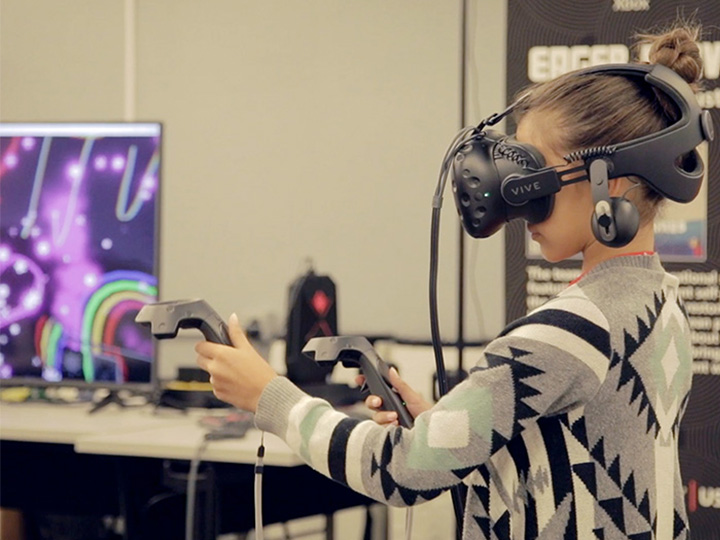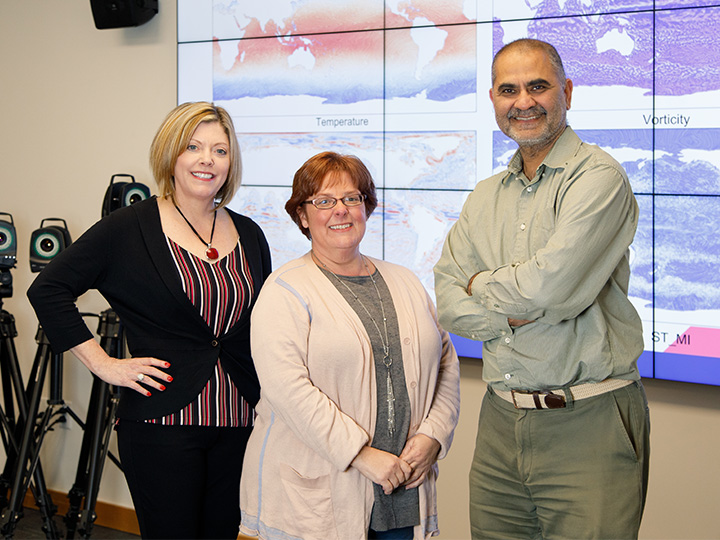

Computer science jobs are the number one source of all new wages in the United States, but only a small percentage of college graduates study computer science. With the help a $1.7 million grant over the next five years, teachHOUSTON, the College of Natural Sciences and Mathematics STEM teacher preparation program at the University of Houston, will train and educate the next generation of computer science teachers. The award is part of an $8 million dollar Supporting Effective Educator Development (SEED) grant from the Department of Education.
“Our goal is to build a computer science teacher pipeline and increase the number of females and underrepresented minorities in STEM fields,” said Paige Evans, teachHOUSTON clinical professor and principal investigator. “Students need to be exposed to STEM in middle and high schools, even elementary school.”
Evans, along with Jaspal Subhlok, chair of the Department of Computer Science and Laura Harlow, an instructional assistant professor with teachHOUSTON, will work with educators across four regions to prepare 240 new STEM teachers over five years. Approximately 60 of those will be trained at UH to address the shortage of STEM educators in the Houston area.
The strategy is to target current computer science majors, people who want a career change or those already working in the industry who are interested in teaching. According to employment projections from the Bureau of Labor Statistics, computing jobs make up 58 percent of all projected new jobs in STEM (science, technology, engineering and math). That translates to more than half a million open jobs available nationwide. The downside? Only 8 percent of STEM graduates study computer science—and women and minorities make up a fraction of that.
“I am hoping this program will attract a disproportionate number of female and minority students,” said Subhlok, who has seen rapid enrollment growth in a new Computer Science 101 course at UH to introduce computing to students with diverse backgrounds and interests.
As part of the program, Harlow is developing a Principles of Computer Science course designed to expose pre-service teachers to methods of teaching computer science as well as integrating computer science into their math and science classrooms. The course will teach computer science through inquiry, the goal of all teachHOUSTON courses.
“High school students need teachers who are passionate about computer science,” Harlow added. “With teachHOUSTON, you will get the skills to be successful in the classroom.”
TeachHouston will receive an initial grant of $906,000 for the first three years and is eligible to apply for a two-year extension for the remainder of the funds. The program starts in fall 2019. Other institutes involved in this effort include the University of North Texas, University of Texas, Louisiana State University and the American Institutes for research.